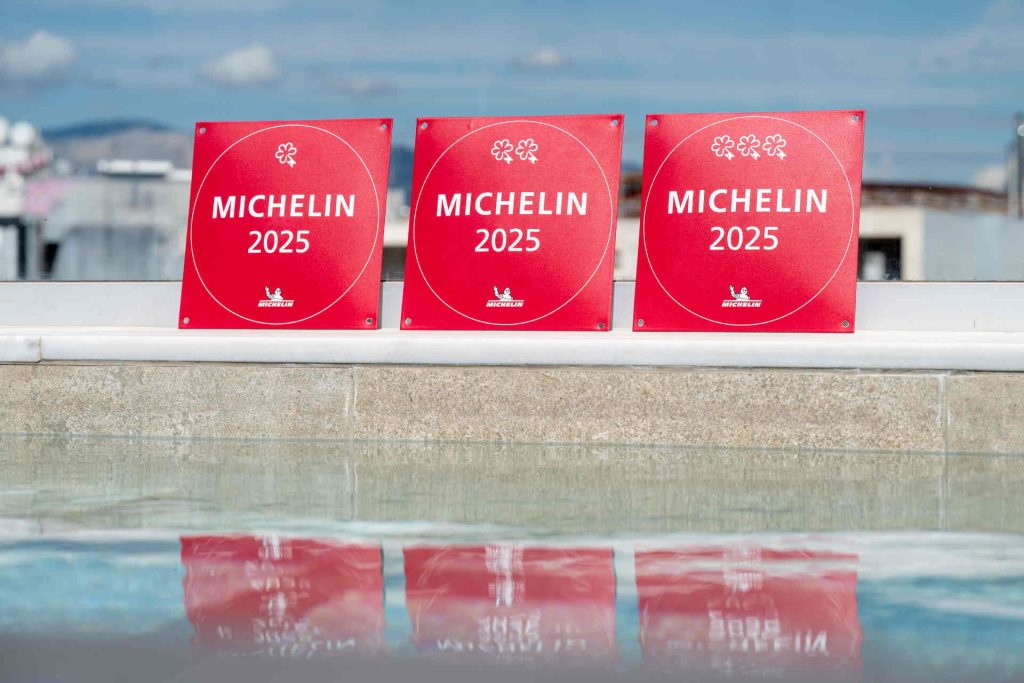
After the star comes the key: The MICHELIN Guide is expanding its rating universe – and will present a worldwide selection of outstanding hotels for the first time in October 2025. A transformation that goes far beyond bed comfort. What is behind the concept? What new standards does it set? And why is it also important for the industry in the DACH region?
The MICHELIN Key is set to become for the hotel industry what the MICHELIN star is for gastronomy - an international seal of quality with depth. It is not a classic points rating or star badge, but a curated system based on five demanding criteria:
These five points show: The key is not aimed at luxury per se, but at emotionality, experience value and sensuality. A stay should be memorable - regardless of whether it is in a traditional boutique hotel or an avant-garde new opening.
The rating follows a three-stage principle:
With more than 7,000 properties in over 125 countries reviewed and 1,500 hotels already awarded, the new rating category is anything but a pilot project - it is a milestone in the international hospitality scene.
In addition to the Keys, MICHELIN 2025 is introducing four new “Special Awards” - for excellence beyond the classic hotel categories:
The nominations will be announced on the MICHELIN channels from mid-August. The awards will be crowned on October 8, 2025 at a festive ceremony at the Musée des Arts Décoratifs in Paris.
Especially in the DACH region, where design hotels, traditional hotels and innovative hideaways are booming, the new MICHELIN hotel selection can become a game changer. It no longer presents quality via star classifications, but via subjective travel experiences - with direct booking access. The dovetailing of content, ratings and commerce is part of a larger development: the guide is positioning itself as an experience platform, not just a recommendation medium.
At a time when guests are looking for meaningfulness, authenticity and immersive stays, MICHELIN is hitting a nerve with its key philosophy.
This development fits in seamlessly with the current trends that Genusspunkt magazine is also pursuing:
With the MICHELIN Keys, the hotel industry has a new navigation system. One that is not based on square meters or star categorizations, but on meaning, authenticity and experience. It remains to be seen which hotels from Austria, Germany and Switzerland will make it into the first global selection. But one thing is certain: the future of the hotel industry will not only be measured - it will be told.

Takeaway without a guilty conscience – and with social added value: since its relaunch in 2024, the TafelBox has become one of the most effective tools against food waste in Austria. The simple principle: guests take leftover food home with them – and at the same time donate to a good cause. For every box sold, 20 cents go directly to Die Tafel Österreich to provide people affected by poverty with rescued food.
Vienna-based start-up and-less is revolutionizing commercial kitchens with a simple but ingenious reusable idea: Sustainability in the hospitality industry doesn’t start with the guest’s plate – it often starts much earlier, behind the scenes. One example of this is communal catering: every day, thousands of meals are delivered to schools, nursing homes, and canteens in disposable containers, which end up in the trash immediately after being emptied. Barely visible to the public, this creates a mountain of waste that, according to and-less, is equivalent to the area of around 181 soccer fields every year.


After the star comes the key: The MICHELIN Guide is expanding its rating universe – and will present a worldwide selection of outstanding hotels for the first time in October 2025. A transformation that goes far beyond bed comfort. What is behind the concept? What new standards does it set? And why is it also important for the industry in the DACH region?